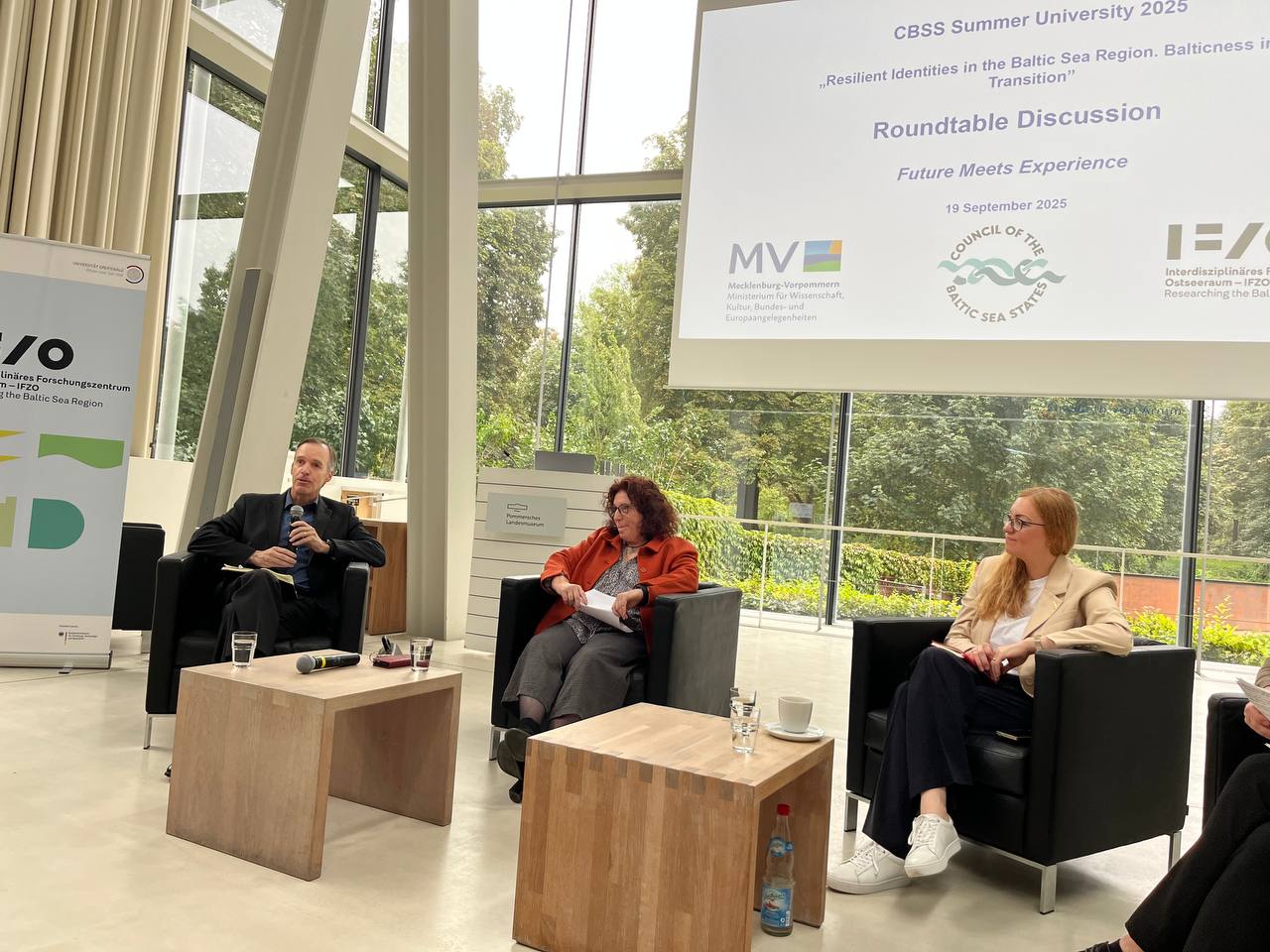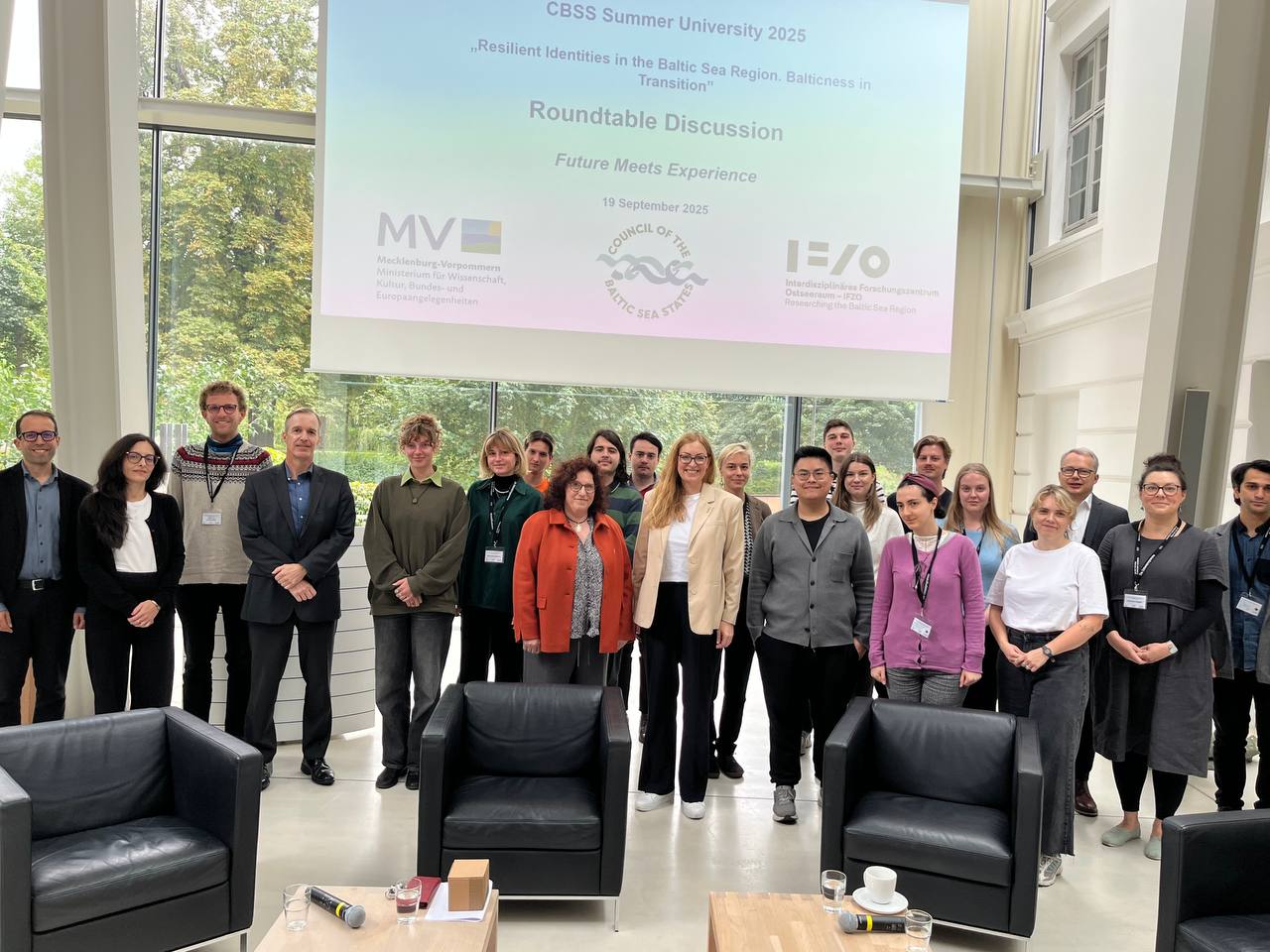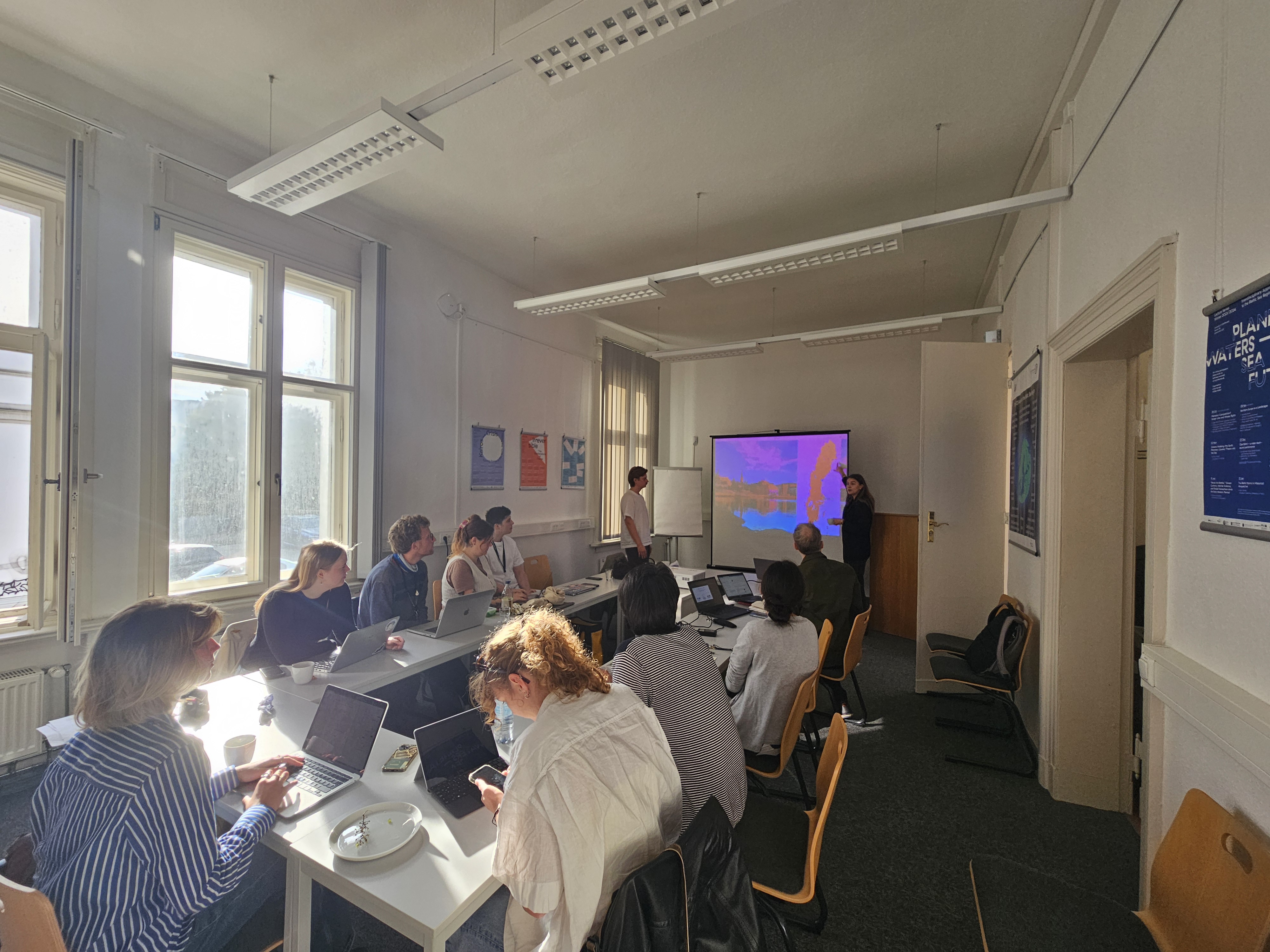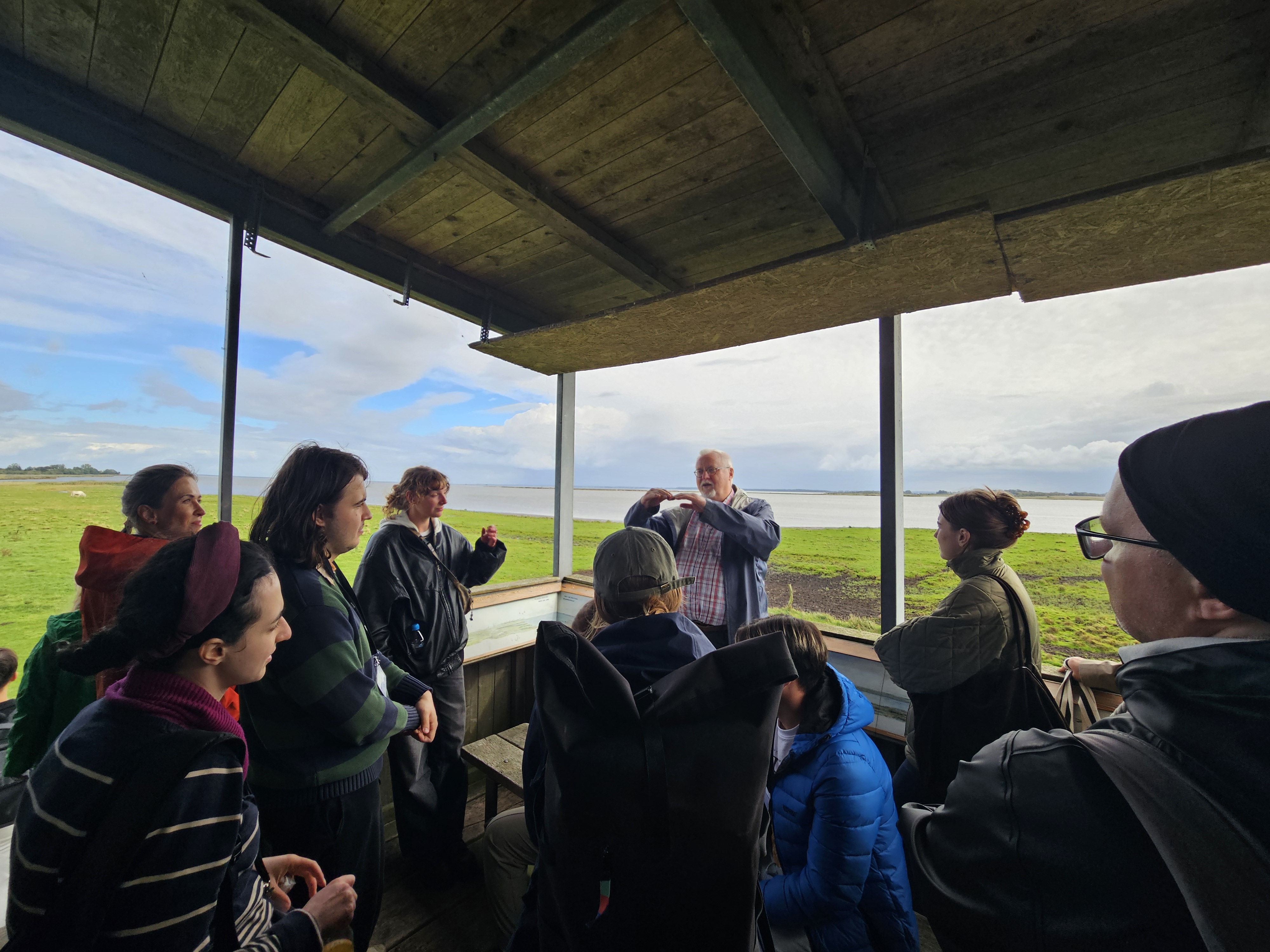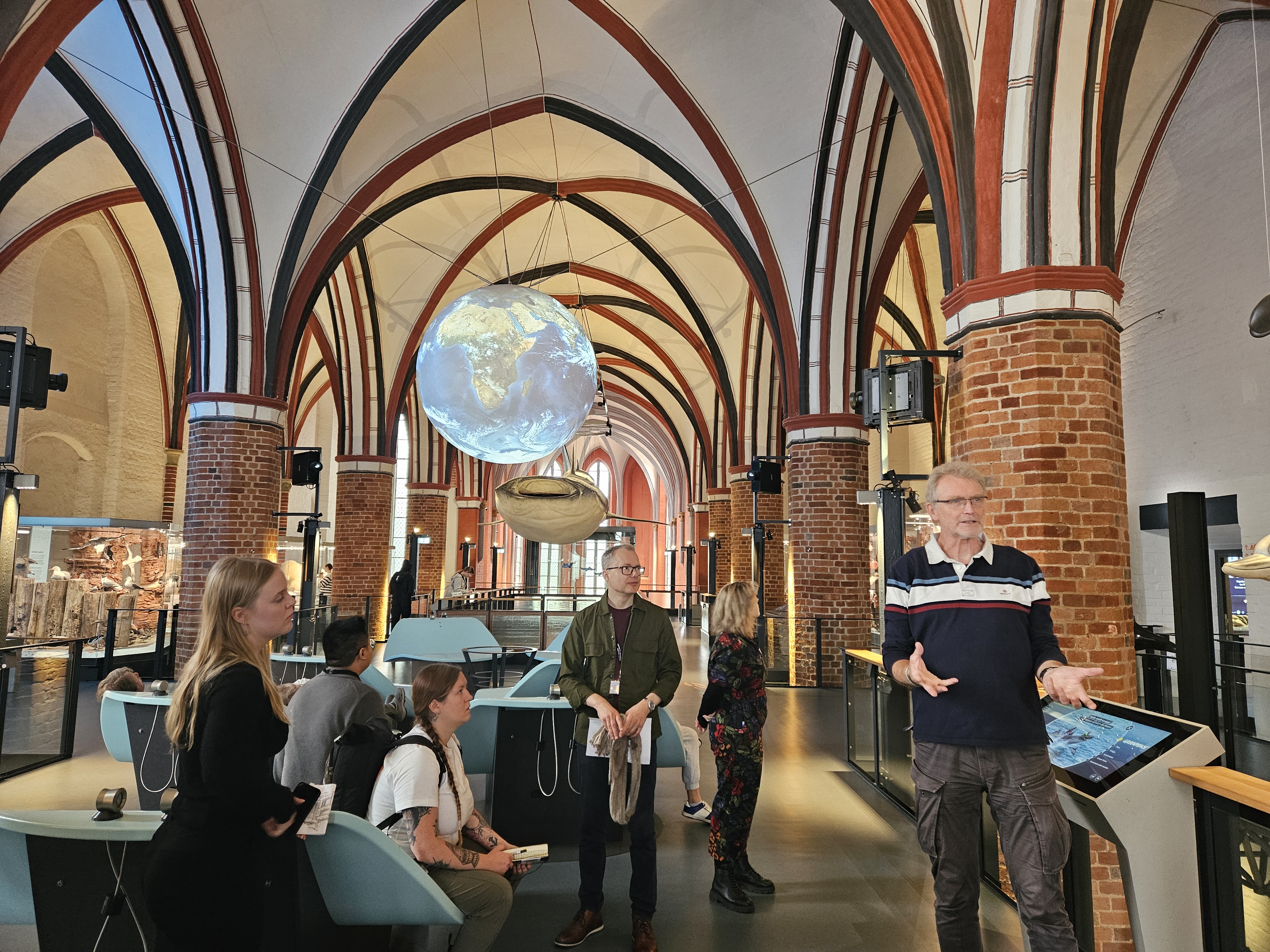From 15 to 20 September 2025, the CBSS Summer University 2025, organized by the IFZO
as a cooperative project of the Young People Network for Balticness and supported by the
Council of the Baltic Sea States, was held for the first time in Greifswald. Under this year’s
theme, “Resilient Identities in the Baltic Sea Region”. Balticness in Transition”, 16
international students explored and discussed questions of diverse resilience cultures in the
Baltic Sea region during a week of seminars and excursions.
The aim was to gain a deeper understanding of the Baltic Sea region as a political and
historical cultural space, closely intertwined with the ecological dimension of the Baltic Sea
itself. The societies of the region are not only facing long-term transformations such as the
energy transition or the protection of the Baltic Sea ecosystem, but are also seeking, through
joint processes of negotiation, ways to strengthen the resilience of shared structures in dealing
with transformations and crises. A central part of this discussion concerns the role of a
collective, regional identity of “Balticness”, which can both provide orientation within one’s
own environment and serve as a counterweight to the opponents of collaborative structures in
the Baltic Sea region as well as to populist and nationalist currents.
The CBSS Summer University 2025 offered an innovative program of lectures and workshops on strengthening democracy through transnational (feminist) activism, on urban civil protection measures, and on eco-cultural resilience in the Baltic Sea region. These were embedded in foundational courses on the cultural construction of the region and linked to the geographical determination of the Baltic Sea as a natural space. Excursions to the Karrendorfer Wiesen, as an example of a peatland landscape and natural resilience formation in the region, and to the Maritime Museum in Stralsund vividly conveyed the interconnection of cultural and natural space and introduced eco-cultural perspectives.
A highlight of this year’s Summer University was the roundtable discussion “Future Meets Experience” at the Pomeranian State Museum, which provided students with the opportunity to exchange ideas with experienced policy makers and implementers on measures and challenges of international, institutional resilience efforts. Panel participants included the Director of the Latvian National Library, Dagnija Baltiņa, the Director General of the CBSS, Gustav Lindström, and the Rector of the University of Greifswald, Prof. Dr. Katharina Riedel.
The week concluded successfully on Saturday with the participants’ creative presentations, in which they illustrated their Pathway to Balticness through narratives of natural processes such as the recoil process of jellyfish or the significance of herring for identities and social change in the Baltic Sea region.

